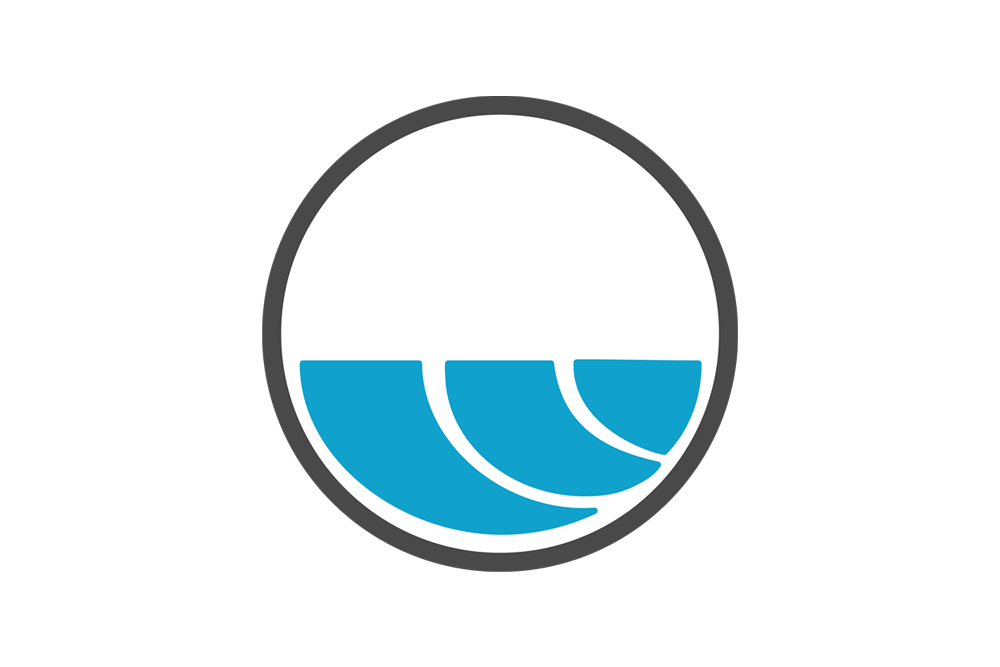We hear about laws being passed that make no sense. According to ETags it is illegal in California for a woman to drive wearing a house coat. Idiot Laws states it’s illegal to play drums on the beach in Santa Monica or to let horse manure pile up higher than six feet in San Francisco. It’s also illegal to wax your car with used underwear in the City by the Bay or walk your lion without a leash. And we all know for some reason or other it’s against the law in California to hunt animals from a moving vehicle unless you’re going after whales.
or walk your lion without a leash. And we all know for some reason or other it’s against the law in California to hunt animals from a moving vehicle unless you’re going after whales.
If the legislation coming out of Sacramento were graded on the criteria of harmful, unintended consequences it would receive an “F” average – provided you believe harmful is bad for the citizens and not just the cost of doing government. That can be a big problem when elected officials attempt to shirk the responsibility of governing by handing off major decisions to unelected and largely unaccountable bureaucrats and appointed padishahs. This is not meant to disparage state employees, most of whom go to work to do their jobs and support their families. They have to deal with public unions, conflicting regulatory directives and budget shortfalls.
Three Authors
There are three bills making their way through the legislative process in Sacramento that would upend California’s economy, domestic food supply and the relation between those who govern and those who are governed by handing water rights over to the State Water Resources Control Board. Who are the authors and where do they come from? Links provided should you like to let them know your thoughts.
- AB 460 by Assemblywoman Rebecca Bauer-Kahan, Dem 16th District. Bauer-Kahan Chair’s the Assembly Water, Parks & Wildlife Committee. Her bio lists relevant work experience as an environmental attorney. Most of the 16th District gets its surface supplies from East Bay Municipal Utilities District and has a very small agricultural footprint. It includes the cities of Walnut Creek, Danville and Livermore. The majority of Bauer-Kahan’s campaign donations came from unions – especially public employee unions and tribal gaming.
- AB 1337 by Assemblywoman Buffy Wicks, Dem 14th District. On her official state website Wicks lists her prior work experience as a community organizer who worked for the Obama Administration in an unnamed capacity. She chairs the Assembly Housing Committee. The 14th District abuts Bauer-Kahan’s and lies just to the west. It also receives its water from East Bay MUD and includes the cities of Richmond, Berkeley and Oakland. This district has an even smaller ag footprint than the 16th. Wicks received the majority of her campaign donations from unions – again heavily financed by public employees unions and tribal gaming interests.

- SB 386 by State Senator Ben Allen, Dem 24th District. He chairs the State Senate Environmental Quality Committee. His bio lists work as an attorney and staff to an elected official. Allen’s site credits him with being the driving force behind converting the state’s transportation to 90 percent electric by 2035. The 24th District includes Malibu, Beverly Hills, Santa Monica and Ranchos Palos Verdes. It receives its water from Metropolitan Water District. Commercial agriculture has a minimum presence. Allen’s campaign coffers were filled by unions, the Service Employees International Union brought a lot to the account.
Three Bills
These three bills have been identified as a major threat to water rights. The bills have caused enough concern that more than 100 organizations have formed a coalition to oppose them. The coalition has members from all over the state and range from the California Chamber of Commerce to the Association of California Water Agencies, to water entities and municipalities from Humboldt Bay to Southern California. Water rights are property rights, and as such may not be infringed without due process of law. It almost seems as if the folks in Sacramento confuse rights with government granted privileges.
Here is some information about the bills provided by the coalition headed up by ACWA. For more information about this effort click here.
AB 460
As written, AB 460 deprives diverters of due process when the State Water Board makes certain findings. The bill would also allow an interim relief order to remain in place for 180 days. 180 days (or 6 months) is an entire irrigation season. This means that a diverter has no real opportunity to defend themselves for an entire 6-month period, and in the meantime, their right to divert water has been suspended.
AB 460 would allow interested parties who disagree with dam releases to seek immediate state intervention and authorize the State Water Board to essentially take over operations, potentially at a moment’s notice. There are more than enough Non-Governmental Organizations/law firms ready to plead for no diversions beyond environmental needs and that would be all the water. More concerning is the State Water Board could immediately issue an interim relief order before holding a hearing if it makes certain findings.
This bill would have the State Water Board serve as prosecutor, judge, jury, and executioner in deciding whether an interim relief order is warranted. This is critical considering that a diverter’s rights to water are at stake without sufficient time to prepare a real case in defense.
The right to present evidence and testimony, to cross examine witnesses and to test evidence against you is a fundamental civil right that must be guaranteed before the state may restrict the use of vested property rights, including water rights.
AB 1337
AB 1337 would overhaul how California has managed and delivered water for more than a century. The bill’s vision for future water management is little more than handing the State Water Board unfettered authority to control water use as it sees fit.
This bill would authorize the State Water Board to adopt sweeping, and permanent, regulations. Neither the proponents nor opponents of this bill know what regulations the State Water Board would adopt in accordance with the bill. The rulemaking authority that would be afforded to the State Water Board is almost entirely without guardrails.
AB 1337 would exempt all regulations and orders issued in accordance with the bill or Water Code Section 1058.5, which allows the State Water Board to adopt emergency regulations during extreme droughts, from the California Environmental Quality Act (CEQA). This would be extremely problematic, as it would authorize the State Water Board to ignore impacts within the service areas of a water supplier.
Accordingly, curtailment authority should remain reserved for emergency drought conditions in order to ensure that this tool is used judiciously and effectively. By limiting curtailment to the most severe and urgent water shortages, the State Water Board can ensure that this tool is used only when necessary and that its impacts are carefully managed.
In contrast, AB 1337 proposes the State Water Board use curtailment to manage all water right allocations, within all watersheds, in any water year. There is nothing in the bill that prevents the State Water Board from issuing curtailments even in a year like California is currently experiencing, where there is more than enough water in watersheds throughout the state to satisfy all water rights. This would be an unnecessary task for the State Water Board and threaten to create chaos in the way water is managed, diverted, and used.
The coalition warns the consequences of AB 1337 should not be considered lightly. This bill threatens to remake the way water rights are managed in California by employing a top-down approach that would override decades of successful collaborative water management practices.
SB 389
Of California’s 40,000 active water rights claims, public water agencies hold approximately 80 percent of the surface water right claims by volume. Water suppliers are collectively responsible for delivering water to cities, farms, and businesses throughout the state. Many of these agencies also provide water for fish and wildlife uses across the state. Dependability in water rights is essential to our state’s economic, social, and environmental stability.
Dependability in water rights is essential to our state’s economic, social, and environmental stability.
The consequences of SB 389 should be of interest to all water right holders. SB 389 could undermine the reliability of any water right, and, in turn, interests that depend on these rights. The bill would authorize the State Water Board to drag any water rights holder before the Board to defend its claim of right.
This bill is not designed to create a fair and transparent process, nor is it narrowly tailored to investigate dubious claims to right. The risk with this bill is its potential to strip public agencies of water rights that have been used to sustain communities for decades. It empowers the State Water Board to initiate an adjudication on its own motion without providing a real basis for its decision to investigate a water right. Once an investigation begins, there are minimal due process protections for the water right holder and the burden of proof rests on the water right holder. State Water Board is the judge, jury and executioner.
burden of proof rests on the water right holder. State Water Board is the judge, jury and executioner.
Unintended Consequences
The coalition has identified four likely results of harm should these bills pass. There are probably several more like – try to get a loan without some assurance your property will have access to a secure water right.
The first consequence the coalition looks at is housing. There is a massive homelessness problem and affordable housing is tough to come by in California. Undermining California’s water rights system could lead to less housing by reducing the amount of water available for new construction.
Housing developers must receive government approval that water agencies will have water available to reliably service new developments. California’s water rights system ensures flexible water management, which allows water agencies to service new demands.
Reductions in water supply will cause developers to spend more on water infrastructure, such as treatment and distribution systems, to meet the needs of new housing construction. These higher costs reduce housing affordability. It is essential to continue to support California’s water rights system to ensure that there is sufficient water available to support new housing production.
The second problem will be infrastructure investments. Water agencies rely on the certainty of water rights when investing in water supply infrastructure. The creditworthiness of water agencies may decrease when water rights become uncertain or unreliable. This decrease can translate into higher interest rates on financing for water supply infrastructure. These higher interest rates mean more expensive projects. As costs climb, projects may be delayed or canceled, which impedes the ability of water agencies to provide reliable water supplies.
Uncertainty created by the loss of reliability in water rights can discourage private sector investment in water infrastructure, leaving water supply projects underfunded. Water agencies are making generational infrastructure investments to ensure a reliable water future in a changing climate. To ensure that water agencies have the necessary funding to invest in infrastructure and provide reliable water supply to their customers, it is crucial to maintain the reliability of water rights and to continue to support water supply infrastructure investment.
future in a changing climate. To ensure that water agencies have the necessary funding to invest in infrastructure and provide reliable water supply to their customers, it is crucial to maintain the reliability of water rights and to continue to support water supply infrastructure investment.
Jobs are at stake. Undermining water supply reliability means fewer infrastructure and housing construction jobs because these industries are dependent on reliable water supply. This can result in fewer job opportunities for workers in the construction and maintenance industries, as well as in other industries that rely on water, such as agriculture and manufacturing.
As if we didn’t have enough problems retaining employers a lack of water supply reliability will discourage businesses from relocating or expanding in California. This could lead to a reduction in job opportunities across various industries, ultimately resulting in a negative impact on the state’s economy.
The cost of water will go up if these bills pass. Water rights instability makes it more expensive to invest in projects and purchase water through transfers, which would lead to higher water rates for Californians. Water agencies are on the front lines of building a 21st century infrastructure for a 21st century climate. About 90 percent of investments in water infrastructure come from water agencies. Legislation that places additional cost pressures on water agencies makes it more difficult to respond to climate change and ensure water affordability for Californians.
century infrastructure for a 21st century climate. About 90 percent of investments in water infrastructure come from water agencies. Legislation that places additional cost pressures on water agencies makes it more difficult to respond to climate change and ensure water affordability for Californians.
Who Will Be In Charge?
If these bills pass and the courts and hearings and other current private property protections are removed from water rights the power given the State Board will be unprecedented. The State Water Resources Control Board is made up of five seats, each filled by appointment by the Governor. But the structure of the State Board has an Executive Officer, a state employee who serves at the pleasure of the board.
All of the above mentioned interim relief orders, curtailment findings and water rights claims will go through the Executive Officer for review before they reach the Board members. Currently the State Board’s Executive Officer is Eileen Sobeck. For a look at her priorities click here.
“There could not be a more critical challenge facing us at this time than the challenge of achieving racial equity. This moment requires us to respond and implement recommended changes to ensure Water Boards policies and programs are equitable and just,” Eileen Sobeck, State Water Board Executive Director.
It’s fair to ask if a radical environmental group or so called racial “justice” groups, many who have stated anti-water rights positions were to act as interested parties in requesting curtailments will receive the same response as farmers and cities depending on water. For a look at some NGOs’ priorities click here.
In 2022 the State Board issued a curtailment on the Shasta River of 100 cubic feet per second that was very difficult for growers and ranchers in the area but they complied. They also asked the State Board for some relief but were told in July the curtailment would be zero for the rest of the season. By mid-August the situation on the ground was dangerous with the possibility of livestock dying and shortages of water for fire suppression. The Shasta River Water Association opted to violate the State Board’s orders and on August 17th it began pumping water from the river to fill stock ponds and try and save what crops they could. The cubic feet per second flow in the Shasta River dropped from 42 cfs to 18 cfs. The pumping continued for seven days until August 24th when the river’s flow dropped to a low of 14 cfs. They stopped pumping and by the early hours of August 25th the Shasta River was flowing at 50 cfs, more than when the
Shasta River Water Association opted to violate the State Board’s orders and on August 17th it began pumping water from the river to fill stock ponds and try and save what crops they could. The cubic feet per second flow in the Shasta River dropped from 42 cfs to 18 cfs. The pumping continued for seven days until August 24th when the river’s flow dropped to a low of 14 cfs. They stopped pumping and by the early hours of August 25th the Shasta River was flowing at 50 cfs, more than when the pumping started. This was mid-summer and there were no salmon runs taking place. Was there any environmental damage? The people along the Shasta River decided it was better to pay a fine than lose their livelihood, have animals die and nothing to fight fire with should there be one. A tribe said fish downstream were stranded on the banks by the rapid decrease of flows.
pumping started. This was mid-summer and there were no salmon runs taking place. Was there any environmental damage? The people along the Shasta River decided it was better to pay a fine than lose their livelihood, have animals die and nothing to fight fire with should there be one. A tribe said fish downstream were stranded on the banks by the rapid decrease of flows.
This incident has been referred to multiple times as a reason to change the State Board’s authority and therefore in the spirit of let’s use an axe instead of a scalpel the above legislation has been written in response.
If you belong to an organization and believe this is bad legislation contact ACWA to lend support to the coalition. If you’re an individual who believes this is bad legislation contact your state Senator and Assemblyman and let them know your feelings. You can make a difference. It’s water rights today, what will it be tomorrow if they are successful?
DISCLAIMER OF RESPONSIBILITY; Waterwrights.net strives to provide its clients with the most complete, up-to-date, and accurate information available. Nevertheless, Waterwrights.net does not serve as a guarantor of the accuracy or completeness of the information provided, and specifically disclaims any and all responsibility for information that is not accurate, up-to-date, or complete. Waterwrights.net’s clients therefore rely on the accuracy, completeness and timeliness of information from Waterwrights.net entirely at their own risk. The opinions expressed in this report are those of the author and do not represent any advertisers or third parties.
ALL RIGHTS RESERVED. Copyright 2023 by WaterWrights.net
































